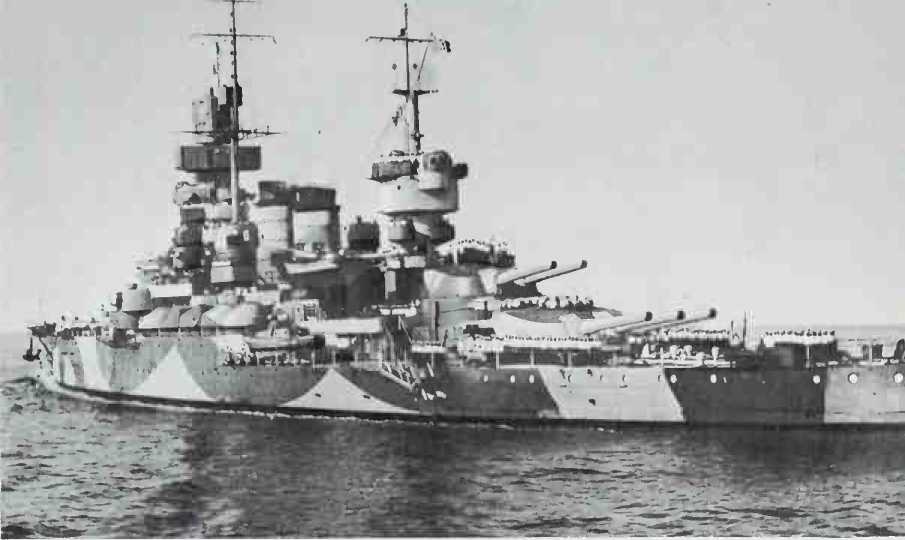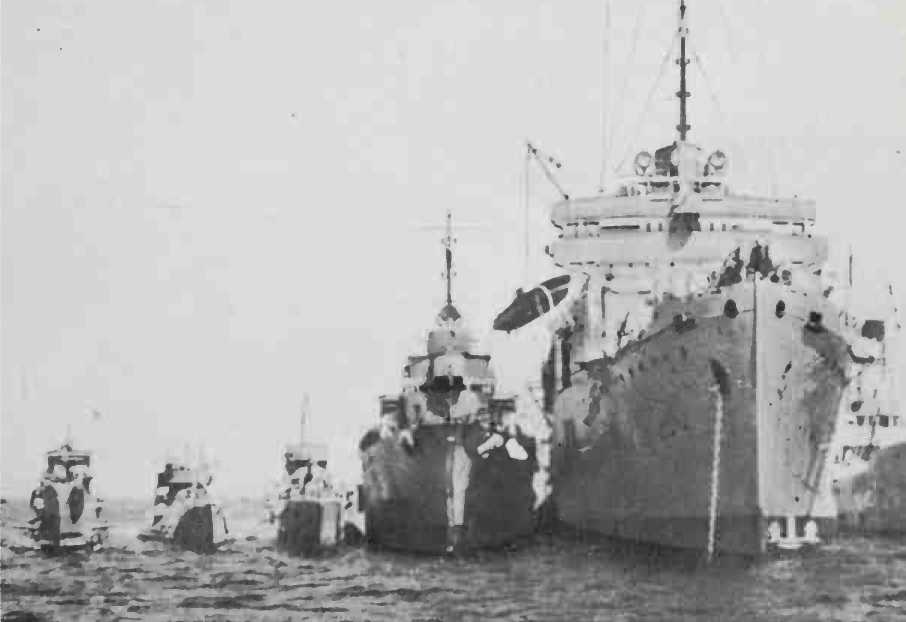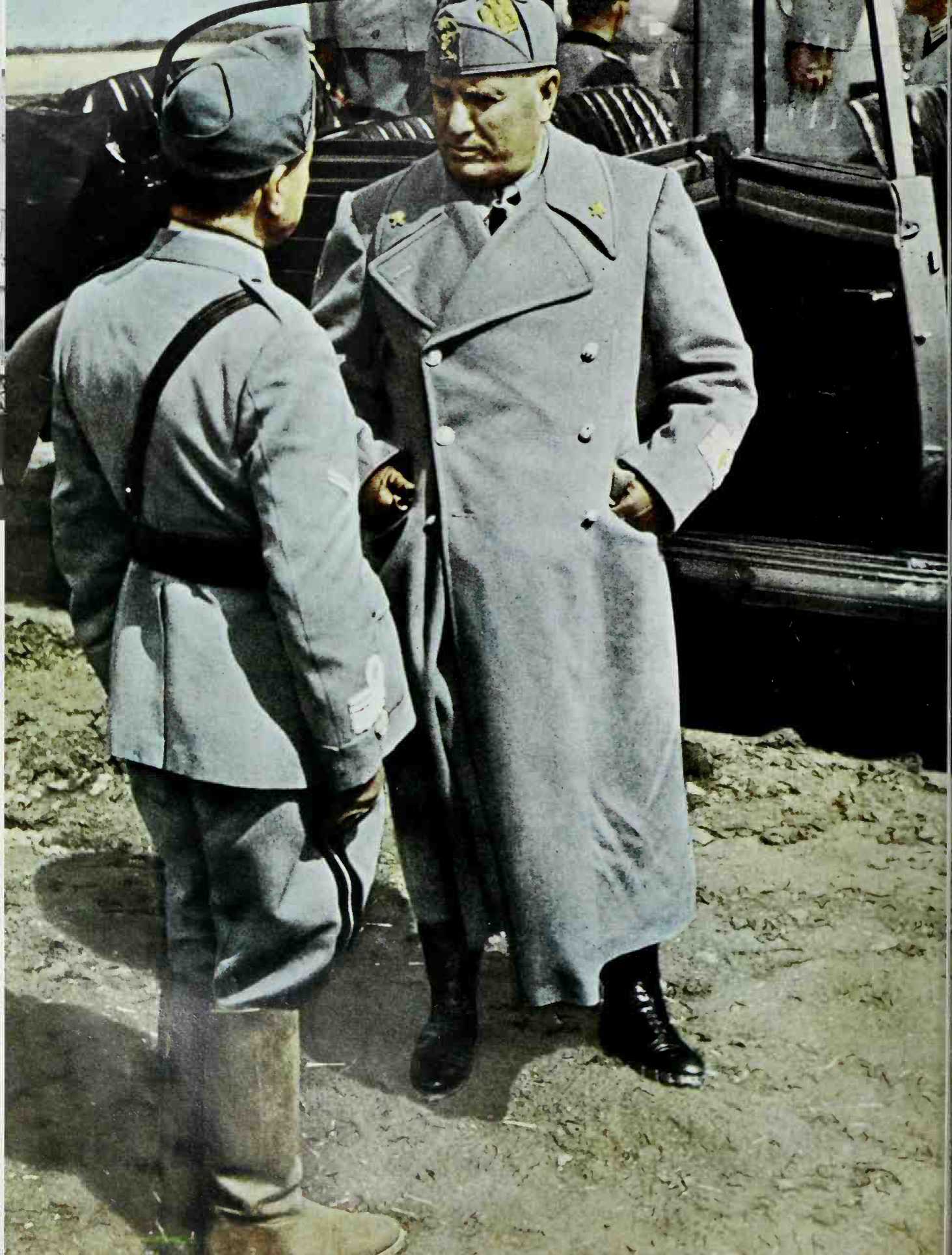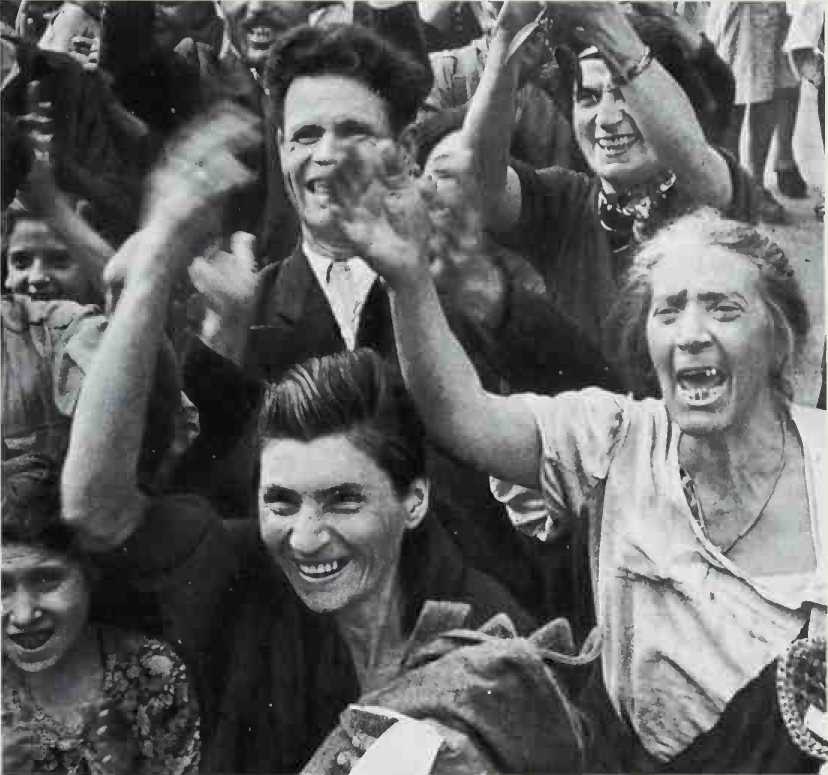It was in this atmosphere of bitterness and defeat that the meeting of the Fascist Grand Council, called by Mussolini, opened at 1700 hours on Saturday July 24 in the Palazzo Venezia. Strange as it may seem, the dictator does not appear to have got wind of the plot hatched against him or of the fact that a majority of the
Council was now against him. This was home out hy Kesselring, who in his memoirs tells how the Duce had received him on the eve of the meeting and had gaily told him as he stepped into the dictator’s office: "Do you know Grandi? He was here a moment ago. We had a clear and frank discussion; we think the same way. He is faithful and devoted to me.’’
Despite information he was receiving from within the Fascist Party, Ambassador von Mackensen was similarly optimistic and said so to Rihhentrop. The conspirators within the Grand Council were much less reassured than Mussolini as they went in, to such an extent that some had been to confession first. Mussolini’s speech restored their spirits. "In a voice without either inspiration or conviction,” Alfieri tells us, "the Duce spoke for two hours, disclaiming his responsibilities, blaming Badoglio, accusing the General Staff of'sabotaging’ the war and singing the praises of Germany.” Grandi was as brief and penetrating as Mussolini had been irrelevant and long-winded and was supported by Bottai, Ciano, Federzoni, and old Marshal de Bono, who had been cut to the quick by Mussolini’s attacks on his comrades. After a brief adjournment and new exchanges the agenda was voted on and Grandi’s motion came out top with 19 votes against eight with one abstention, that of Suardo, the President of the Senate. One of the majority withdrew before dawn; this saved his life at the Verona trial. It was almost three in the morning when Mussolini declared the meeting closed without, it would seem, having himself said one memorable thing during the whole session. The final scene of the Fascist Grand Council is described thus by F. W. Deakin; "Grandi addressed the meeting briefly. He then handed his motion to Mussolini. The names of the nineteen signatories were appended. The Duce put the paper in front of him with 'affected indifference.’ And then 'without another word or gesture and in a relaxed and resigned manner’ he called on Scorza to put Grandi’s motion to a vote.
"Scorza stood up, and starting in order of priority round the table with De Bono, he called the roll of the names of those present. In an oppressive silence he counted. Nineteen in favour; seven against. Suardo abstained; Farinacci supported his own motion, on which no vote was taken. The Duce gathered his papers





A A happy crowd welcomes the arrival of American forces in the Sicilian city of Palermo.
< Benito Mussolini. His days as the leader of a united Italy were now numbered-all he had to look forward to was a comfortable incarceration by the new authorities, and then rescue by the Germans. But even this latter merely confirmed the ex-dictator’s role as Hitler's latest lackey.
And stood up. According to his subsequent account he said; 'You have provoked the crisis of the regime. The session is closed.’ Scorza attempted to call for the ritual salute to the Duce who checked him, saying; 'No, you are excused,’ and retired to his private study.”




 World History
World History









